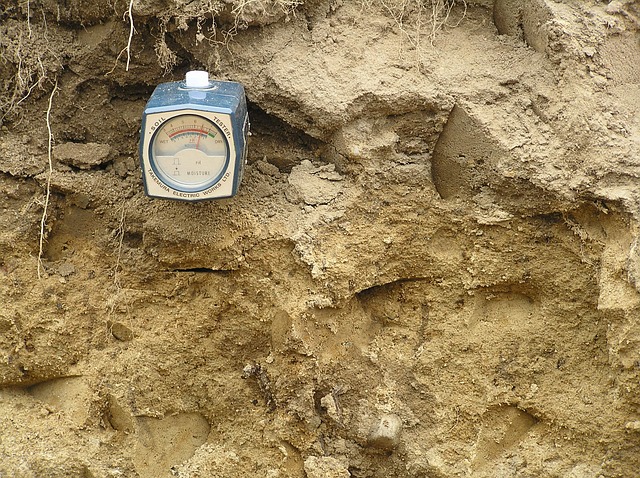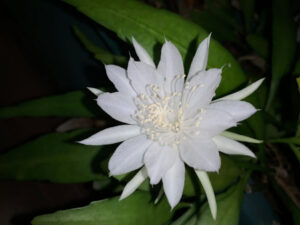Succulents are often viewed as indomitable plants, thriving in arid environments and surviving on minimal care. However, when it comes to their soil preferences, many succulent enthusiasts are left pondering a vital question: do succulents like acidic soil? This query invites a journey through the realm of soil science, plant biology, and the unique needs of succulents.
Sifting through layers of information, we uncover critical insights about the impact of soil pH on these intriguing plants. Understanding their relationship with acidity can dramatically alter how we care for them, potentially revolutionizing a grower’s approach to cultivating thriving specimens.
Let us delve into the enigmatic world of soil pH and unearth the hidden truths about succulents and acidic soil.
What Exactly Is Soil pH and Why Should You Care?
Soil pH is a measure of the acidity or alkalinity of the soil, quantified on a scale from 0 to 14. A pH of 7 is considered neutral, values below 7 indicate acidity, and those above denote alkalinity. For succulent enthusiasts, comprehending the pH scale is fundamental. It directly influences nutrient availability, microbial activity, and overall plant health.
Many succulents, particularly those native to arid regions, have evolved in soils that range from mildly acidic to neutral. However, they have adapted to thrive best when the pH leans slightly towards the alkaline side of the spectrum, often favoring levels between 6.0 to 7.5. This slight alkalinity promotes the optimal absorption of essential nutrients such as phosphorus, potassium, and magnesium, which are critical for succulent vitality.
Diving Deeper: The Myth of Acidic Soil
A common misconception among succulent growers is that acidic soil is suitable for all varieties. This notion likely stems from the understanding that some plants, including certain cacti, can tolerate various pH levels. However, succulents, as a broader category, do not thrive in highly acidic conditions. In fact, excessive acidity can impede growth, leading to symptoms such as nutrient deficiency, poor root development, and increased susceptibility to diseases.
Consider a Magician’s Brew: What Makes Soil Acidic?
Many factors contribute to the acidity of soil. Organic matter decomposing, rainfall leaching, and the presence of certain minerals can all increase soil acidity. Creative soil mixes, which incorporate ample organic matter, can inadvertently tip the scales too far into the acidic realm. Thus, gardeners must take extreme care in formulating their soil mixtures.
Soil Amendments: Nurturing Balanced pH Levels
To create a hospitable environment for succulents, it is crucial to strike a balance. Adjusting soil pH can be accomplished through various amendments. Dolomitic lime is one commonly utilized additive that can help raise pH levels, fostering a more alkaline environment conducive to succulent health. If you wish to lower acidity for specific conditions, elemental sulfur may come into play, though one must wield it judiciously, as it can create sudden shifts in pH levels.
The Impact of Soil Composition on pH
The composition of your soil is as significant as the pH level itself. A well-draining mix that includes materials such as coarse sand, perlite, or pumice can cultivate an ideal environment. While sphagnum moss and peat can help retain moisture, relying heavily on them may inadvertently lead to a more acidic mixture. A succulent’s roots are unforgiving; excess moisture and the wrong soil composition can lead to root rot, a perilous fate for these otherwise robust plants.
Pioneering a New Perspective: Embracing Custom Soil Mixes
Understanding that a one-size-fits-all approach does not apply to succulent care is essential. Crafting personalized soil mixes tailored to the specific needs of your succulent types opens opportunities for experimentation and growth. Each succulent possesses unique characteristics and preferences based on its origin—cacti may fare well in sandier soils, while other succulents might prefer a richer, more aerated mix.
Testing Soil pH: The Key to Success
No gardener should venture without knowledge of their soil’s pH. Investing in a reliable pH testing kit aids in monitoring and maintaining the necessary levels for continued plant health. Regular assessments inform timely adjustments and ensure your plants receive the nutrients they require to flourish.
In Conclusion: The Verdict on Acidic Soil for Succulents
Ultimately, the consensus is clear—while some succulents may tolerate mild acidity, they thrive best in slightly alkaline conditions. Cultivating a keen understanding of soil pH and its implications enhances a grower’s ability to create a nurturing environment. The journey to succulent success involves respecting the delicate balance of soil composition, pH levels, and plant needs.
In your quest for cultivating lush, vibrant succulents, remember that the soil is more than just a vessel; it is an intricately woven ecosystem that supports life. Embrace the complexities of soil science, question assumptions, and allow yourself to marvel at the wonders of nature! With newfound knowledge in hand, take your succulents to new heights by providing the optimal conditions for their growth and prosperity.




Leave a Comment